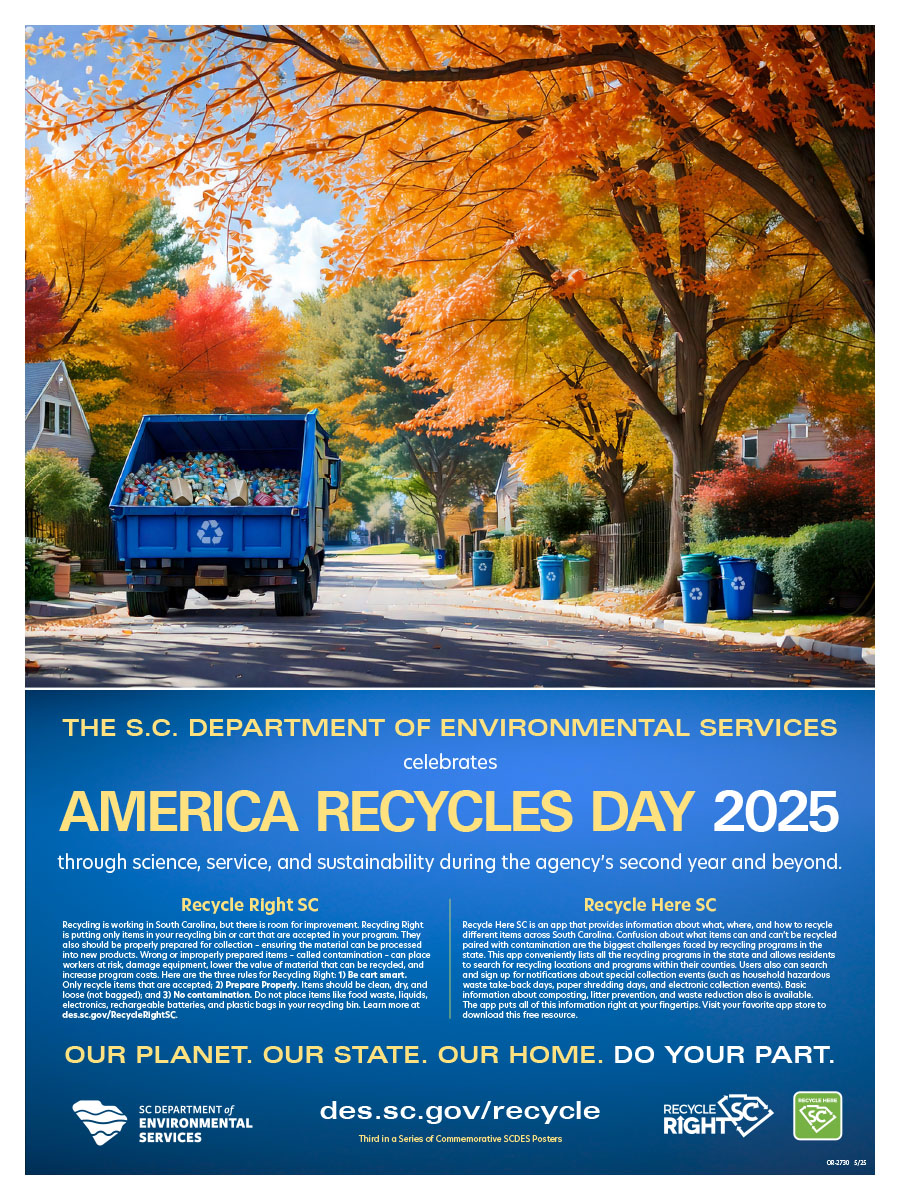America Recycles Day
Thursday, Nov 13, 2025

It’s almost November 15, which means America Recycles Day is right around the corner. Promoted by the Environmental Protection Agency (EPA), it showcases the importance of this practice to our economy and environment, as well as reaching the National Recycling Goal of a 50% recycling rate by the year 2030.
What is Recycling?
EPA defines recycling as “process of collecting and processing materials that would otherwise be thrown away as trash and turning them into new products."
Why Recycle?
Recycling is highly beneficial for the environment, economy, and energy efficiency. For the environment, it helps protect natural resources and diverts waste away from incinerators and landfills that degrade and add greenhouse gases to the atmosphere. When new products are recovered from prior ones, it removes mining as a step in the process, reducing pollution from on site and associated transportation.
It also provides considerably to the economy. A 2016 Recycling Economic Information study by the agency discovered that reuse and recycling accounted for 681,000 jobs, or 1.17 jobs for every 1,000 tons of materials recycled. Additionally, recycling allows for an increased reliance on domestic resources and manufacturing.
Similar to reducing pollution, recycling also conserves energy by cutting out steps that require considerable energy— such as extraction, transportation, manufacturing, and processing.
How to Recycle
It is crucial to understand how to properly recycle materials you plan to discard. Always check with your local county, municipality, or recycling center for what materials are appropriate to recycle there. Putting the wrong items in the recycling bin cause a host of issues, from damaging equipment to even endangering workers at the facility.
What can go in the bin:
- Cardboard
- Food boxes (Fun fact: pizza boxes with grease are still acceptable! Just ensure that all food scraps are removed)
- Food cans
- Beverage cans
- Paper
- Plastic bottles and caps
- Glass bottles
- Jars (plastic and glass)
What can NEVER go in the bin:
- Food
- Paper soiled by food
- Bowling balls
- Garden hoses
- Aerosol cans that are not empty
- Propane tanks or cylinders
- Sewing needles
- Broken glass, broken lightbulbs, and syringes (avoid putting these in the garbage as well)
Important note: Items such as plastic bags, electronics, and textiles usually should not be placed into curbside recycling bins. Additionally, some areas may have programs set up for collecting household hazardous waste. As stated before, always check with the local recycling authorities.
For food waste, it is highly encouraged to compost it. See the EPA’s Composting At Home for how tips on how to compost at home.
Resources for Recycling
EPA provides several extensive resources on recycling, including an FAQ.
The Recycle Here SC app is a useful tool that includes information on recycling centers, common recycling terms, and what items can be accepted.

